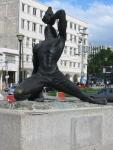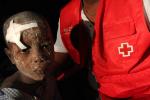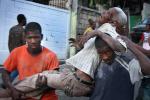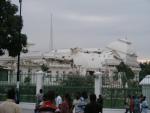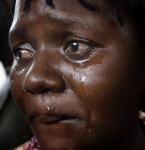2014 UN Humanitarian Action Plan for Haiti Released
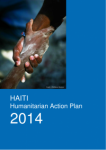 The UN has released its 2014 Humanitarian Action Plan for Haiti. While 89% of camp residents have moved out and significant progress has been made against cholera, significant challenges remain such as halting environmental degradation and reducing vulnerability to disasters. The plan focuses on meeting the basic needs of those remaining in the camps, addressing the cholera epidemic, increasing food security, and strengthening the leadership and capacity of national authorities. A summary of the plan follows.
The UN has released its 2014 Humanitarian Action Plan for Haiti. While 89% of camp residents have moved out and significant progress has been made against cholera, significant challenges remain such as halting environmental degradation and reducing vulnerability to disasters. The plan focuses on meeting the basic needs of those remaining in the camps, addressing the cholera epidemic, increasing food security, and strengthening the leadership and capacity of national authorities. A summary of the plan follows.




